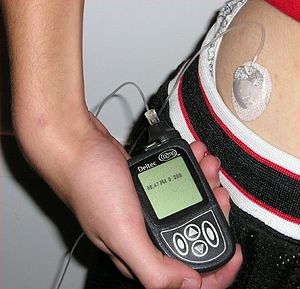Those who have been diagnosed with diabetes will often feel that their life has been turned upside down and their future is clouded in mystery. However, in theory there are many different ways to control your diabetes and ultimately diabetes should not be a life-threatening condition in normal circumstances. Unfortunately, more and more diabetics are reporting instances of sleep deprivation and insomnia which are having a major impact upon their everyday lives and their everyday mood. We therefore thought it would be interesting to take a look at the potential link between diabetes and sleeping patterns amongst those with the condition.
General insomnia
Sometimes it is difficult to remember your sleeping patterns prior to being diagnosed with diabetes therefore some people may incorrectly associate their diabetes with their insomnia. The truth is that a large percentage of the worldwide population will suffer from insomnia at some point in their life due to a variety of reasons which are not connected with diabetes. However, there are more and more reports which are suggesting a very strong link between diabetes and a whole range of other medical and psychological issues which can all impact sleep to a certain degree.
Depression
It is common knowledge that depression and insomnia very often go hand-in-hand because of chemical imbalances in the brain, mood swings and an inability to “switch off” at night time. What can often begin as a relatively modest dose of insomnia can very quickly take over your life and become something of a self-fulfilling prophecy – a nightmare!
There is a definitive link between diabetes and depression, the worry of how you will cope, how your family will cope and whether indeed you may suffer a hypo at any point in the day. Some people handle this pressure better than others although for some it can push them towards a spiral of depression which then appears in the shape of insomnia. For those who have diabetes and suffer from depression and debilitating insomnia there may be a key to reducing the impact of insomnia, by improving the management of their diabetic condition. Consult your doctor and advise them of your problems sleeping because there may be a different treatment which is better suited to you.
Hot Flashes
We all have very different sleeping patterns and sleeping styles which may include being tucked up under the duvet or perhaps having half of your body outside of the duvet to better regulate our body temperature. One side-effect of relatively high blood glucose levels can be an increase in your body temperature which for some people can be the make or break between a good night sleep and an extremely restless sleep.
Again, as with depression, one of the more simple ways to approach hot flashes during the night when they are associated with your diabetes is to perhaps look at your medication. Are you measuring your blood glucose levels often enough? Is the insulin you are using the right type for you? Are you managing your diet and your daily exercise routine correctly? Are you taking the right dose of insulin for your situation? It does not take a major movement in your body temperature to disturb your sleep, to bring on bouts of insomnia and in some cases depression.
Visits to the Bathroom
One area of everyday life which is very much associated with diabetes is constant visits to the bathroom when your blood sugar levels are too high. This is the body’s way of excreting this excess blood sugar from your body to ensure that it does not damage your overall health any further. The amount of times which you visit the bathroom through the night time will again be directly linked to the management of your underlying diabetes condition and constant nights of broken sleep are not healthy for you.
Those who suffer from constant urination through the night perhaps need to consult their doctor about taking more regular blood glucose readings to try and better regulate their doses of insulin. It should be fairly straightforward, although you may well need to wake yourself in the middle of the night while testing your levels to put together a new plan of attack. This may see you take on board more insulin later in the evening which will then help to regulate your blood glucose levels through the night.
Conclusion
There are many connections between diabetes and bouts of insomnia not to mention depression and other similar conditions. Sometimes by tackling and better managing one of these conditions it can have a knock-on effect on the others and ultimately lead to a better sleeping pattern and sleeping style. Many diabetics constantly complain of “daytime sleepiness” which even in somebody not suffering from diabetes would have an impact upon their night-time sleeping habits.
The fact is that not all types of insulin are best suited to each individual diabetic therefore if you are having problems sleeping at night and this is having a knock-on effect and bringing on conditions such as depression and insomnia, consult your doctor. There may be a simple way to better regulate your blood glucose levels via your insulin intake and to give yourself the best chance of a good night sleep. It is very easy to underestimate the importance of sleep but it is basically the body’s time to replenish and re-energize for the day ahead – not to mention the positive impact this has upon the brain and the way in which we think.
Related articles
- Do You Suffer Diabetic Hypos in Your Sleep? (valleysleepcenter.com)
- Can Losing Sleep Lead to Diabetes? (valleysleepcenter.com)
- What You Don’t Know About Sleep Could Hurt You (valleysleepcenter.com)


